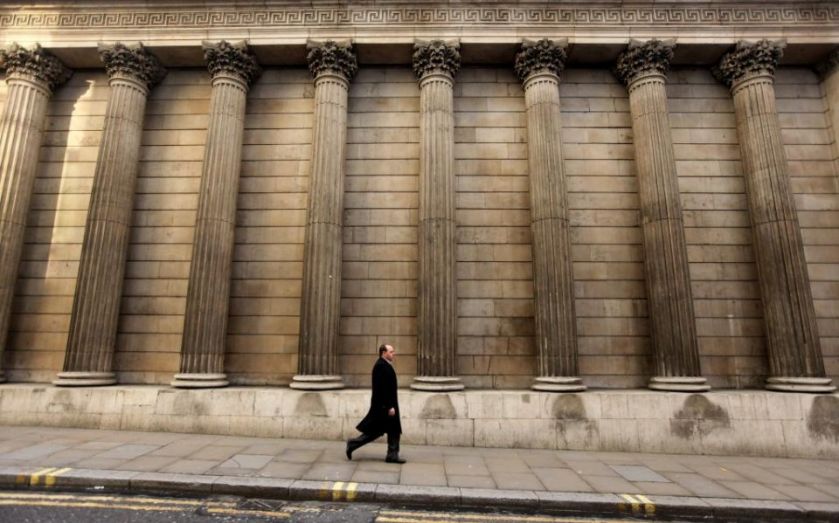Super Thursday: Dissent in the ranks as Bank of England monetary policy committee votes 8-1 to hold interest rates

UK policy makers took a step toward raising interest rates for the first time in eight years today as the Bank of England’s committee of rate-setters broke their unanimity on voting to keep borrowing costs at record lows.
The pound fell 0.49 per cent against the dollar to 1.5526 on the news, sliding 0.24 per cent against the euro to 1.4273.
Rates at the Bank of England have been kept at 0.5 per cent since March 2009, and the monetary policy committee has been unanimous in voting to keep them there since December.
But rate-setter Ian McCafferty broke rank yesterday as the MPC voted eight to one not to raise interest rates.
McCafferty saw a risk of inflation over shooting the two per cent target in future, and argued that postponing the first hike might mean having to increase it more sharply later on.
There are hints that other members could soon follow suit, with some saying easier credit conditions, higher consumer confidence and strong pay growth creating a risk that inflation could overshoot the Bank’s forecast.
Recent falls in commodity prices mean the Bank currently expects lower inflation in the near-term than in its May last forecast, according to its August Inflation Report. But it still expects inflation to return to target in two years’ time, the same as its previous prediction.
In a mandatory letter to chancellor George Osborne, Bank governor Mark Carney said he expected near-zero inflation rates to continue for the next few months, but that they “are unlikely to endure beyond this year.”
Most members of the committee wanted to wait and see how productivity, wage growth, and risks to the global economy evolved over the coming months. They were more cautious after the pound continued to strengthen and commodity prices dropped. A strong pound makes imports cheaper and weighs on inflation.
It was more upbeat on economic growth in Eurozone and US, but expressed concern over events in China which has slowed notably this year.
The outlook for the UK economy was also strong, with business investment and consumer spending forecast to grow more quickly than previously, offsetting chancellor George Osborne’s austerity measures.